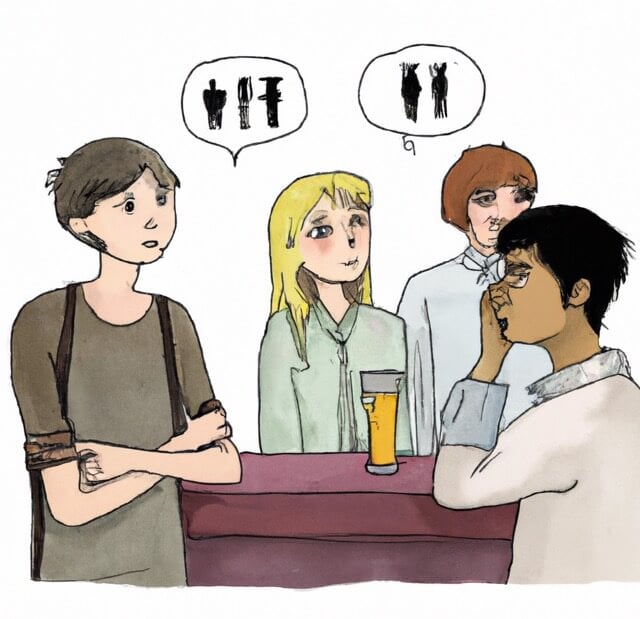In the realm of addiction recovery, relapse often gets a bad reputation.
People are quick to label relapse as a failure, a sign of weakness, or proof that rehab doesn’t work. However, if there is one thing we can learn from the recovery journey, relapse is often an integral part of the process.
In this blog, we will explore the importance of medication-assisted treatment (MAT) compared to abstinence-only approaches.
Also, we will shed light on the evidence supporting long-term outcomes and emphasize the significance of sober living, like Pacific Beach Recovery in San Diego, after choosing a state-licensed and nationally accredited treatment facility. We will also touch upon the value of real testimonials in video form, helping us identify genuine stories from mere acting.
The Essence of Relapse in Recovery
Relapse is a reality that many individuals face during their journey to sobriety. It is crucial to understand that relapse does not signify a failure or the end of the recovery path. Instead, it can serve as a powerful catalyst for growth and self-reflection. Timothy Sykes once said, “Failure is only the opportunity to begin again, this time more intelligently,” this sentiment perfectly applies to the recovery journey. Relapse provides an opportunity for individuals to gain a deeper understanding of their triggers, work on coping mechanisms, and refine their approach to long-term sobriety.
The Importance of Medication-Assisted Treatment (MAT)
MAT has revolutionized addiction treatment, offering individuals a comprehensive approach to recovery. Unlike abstinence-only programs, MAT combines evidence-based medications with therapy and counseling. This integrated approach has shown promising results in reducing cravings, preventing relapse, and improving overall treatment outcomes. Research has consistently demonstrated that MAT when used in conjunction with therapy, produces significantly higher rates of long-term sobriety compared to abstinence-only approaches.
Evidence Supporting Positive Long-Term Outcomes
It is essential to base our decisions about addiction treatment on scientific evidence rather than strong morals that emphasize guilt and shame in case of relapse. Numerous studies have demonstrated the effectiveness of MAT. For example, a study published in the Journal of the American Medical Association found that individuals receiving MAT were likelier to remain engaged in treatment than those receiving only counseling. Moreover, MAT has also been linked to reduced opioid-related overdose deaths.
Choosing a State-Licensed and Nationally-Accredited Treatment Center
When seeking a halfway house or sober housing after addiction treatment, it is crucial to select one that works with state-licensed and nationally accredited facilities. Pacific Beach Recovery in San Diego is a prime example of such housing, providing individuals with top-notch care and support on their road to recovery after treatment and working closely with them. Accreditation of these places ensures that the treatment facility meets rigorous standards of quality and safety, giving individuals peace of mind during the vulnerable rehabilitation process. In choosing a reputable facility like those, our team works closely with Pacific Beach Recovery individuals who can access a wide range of evidence-based therapies, experienced professionals, and a supportive community of peers.

Young adults are finding solace in each other’s company, having a candid conversation about the arduous journey of overcoming addiction and their grievances about rehab.
The Power of Real Testimonials
When looking for a treatment facility, you may come across numerous testimonials claiming success stories. However, it is essential to differentiate genuine testimonials from mere acting. Video testimonials can be particularly effective in discerning authenticity. Honest stories convey the raw emotions, struggles, and triumphs of individuals who have embarked on the recovery journey. PB Recovery takes pride in showcasing real testimonials, allowing potential clients to witness the transformative power of their programs.
Embracing Sobriety, Community, and Non-Judgment
Regardless of the challenges faced, individuals need to choose sobriety and embrace a community-based, science-backed approach to recovery. The path to sobriety is not always smooth, and setbacks like relapse should be viewed as opportunities for growth rather than moments of failure. Surrounding oneself with a supportive community that understands the complexities of addiction can make all the difference in long-term recovery. PB Recovery, with its emphasis on non-judgmental support and evidence-based therapies, provides individuals with the tools and resources necessary to navigate the highs and lows of the recovery journey successfully.
Conclusion
In conclusion, it is never too late for rehab. Recovery is a unique and complex process that encompasses relapse and growth. Medication-assisted treatment (MAT) has emerged as a game-changer in addiction recovery, offering individuals a comprehensive approach to long-term sobriety. The evidence supporting MAT’s positive outcomes is robust and cannot be ignored. When seeking treatment, it is imperative to choose a state-licensed and nationally accredited center that can work with our aftercare housing and keep the medication aligned, where genuine testimonials highlight the transformative power of their programs. Above all, embracing sobriety, a supportive community, and science-based therapies is the key to achieving lasting recovery. So, remember, no matter how challenging the journey, always choose the path of sobriety and let non-judgment and community be your guiding lights.
By Valerie T.


